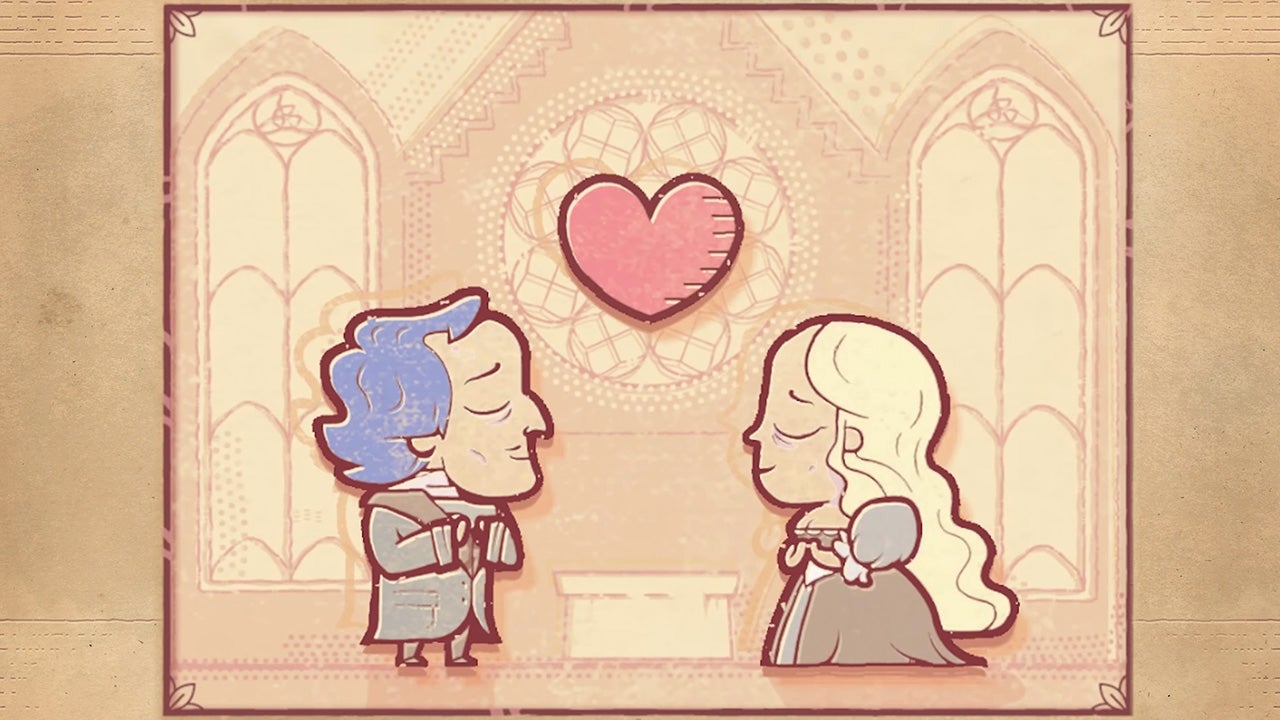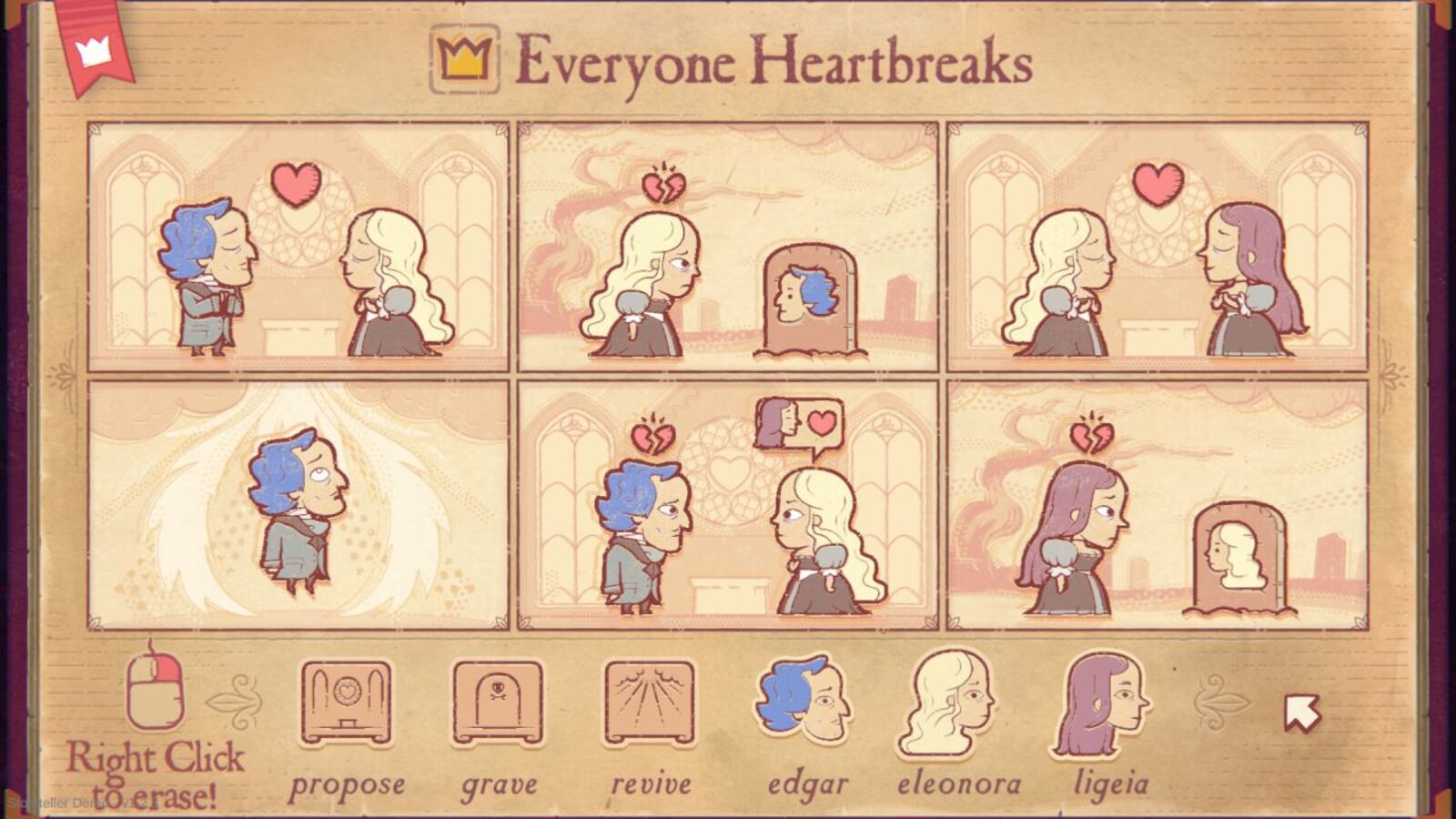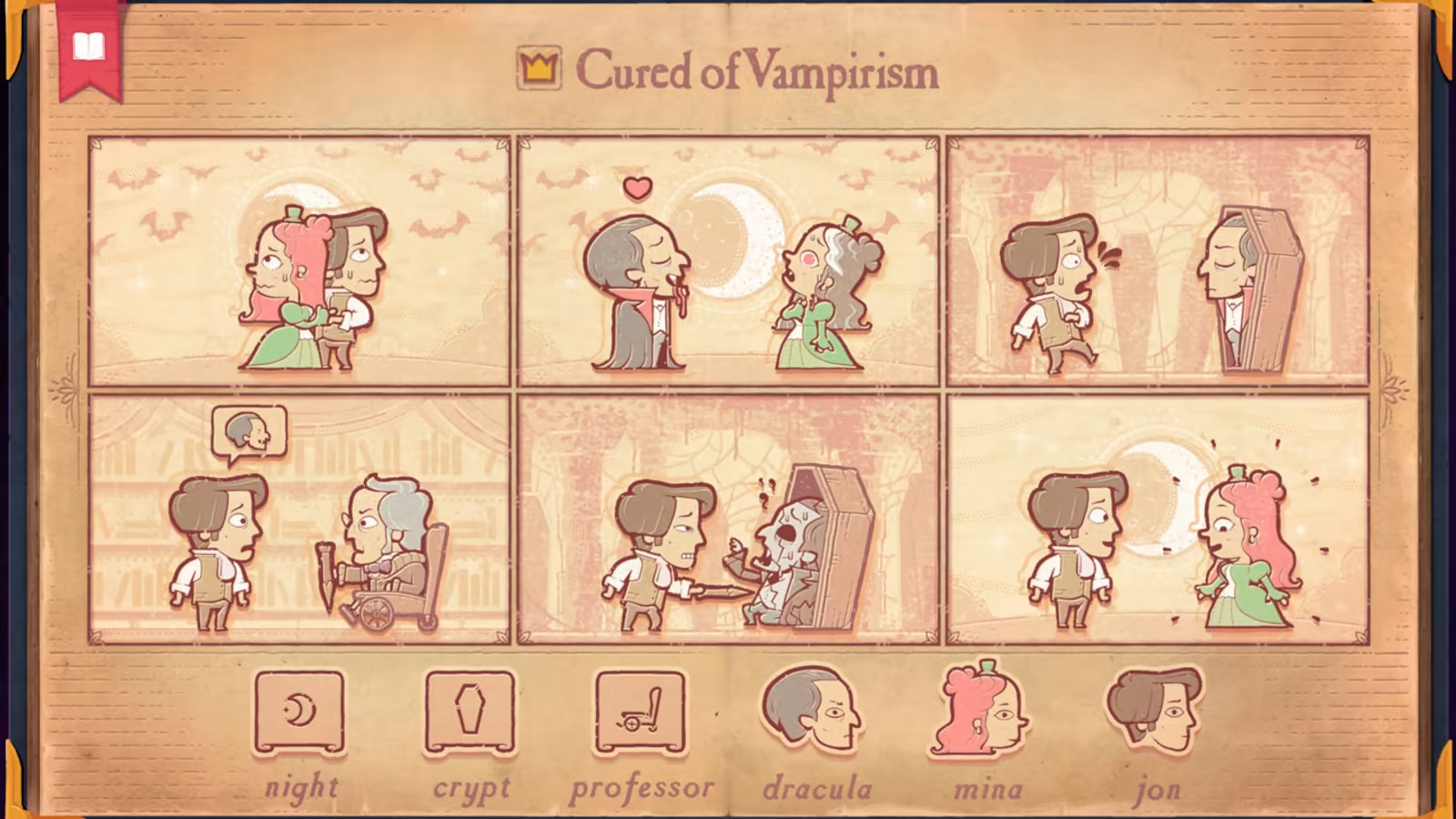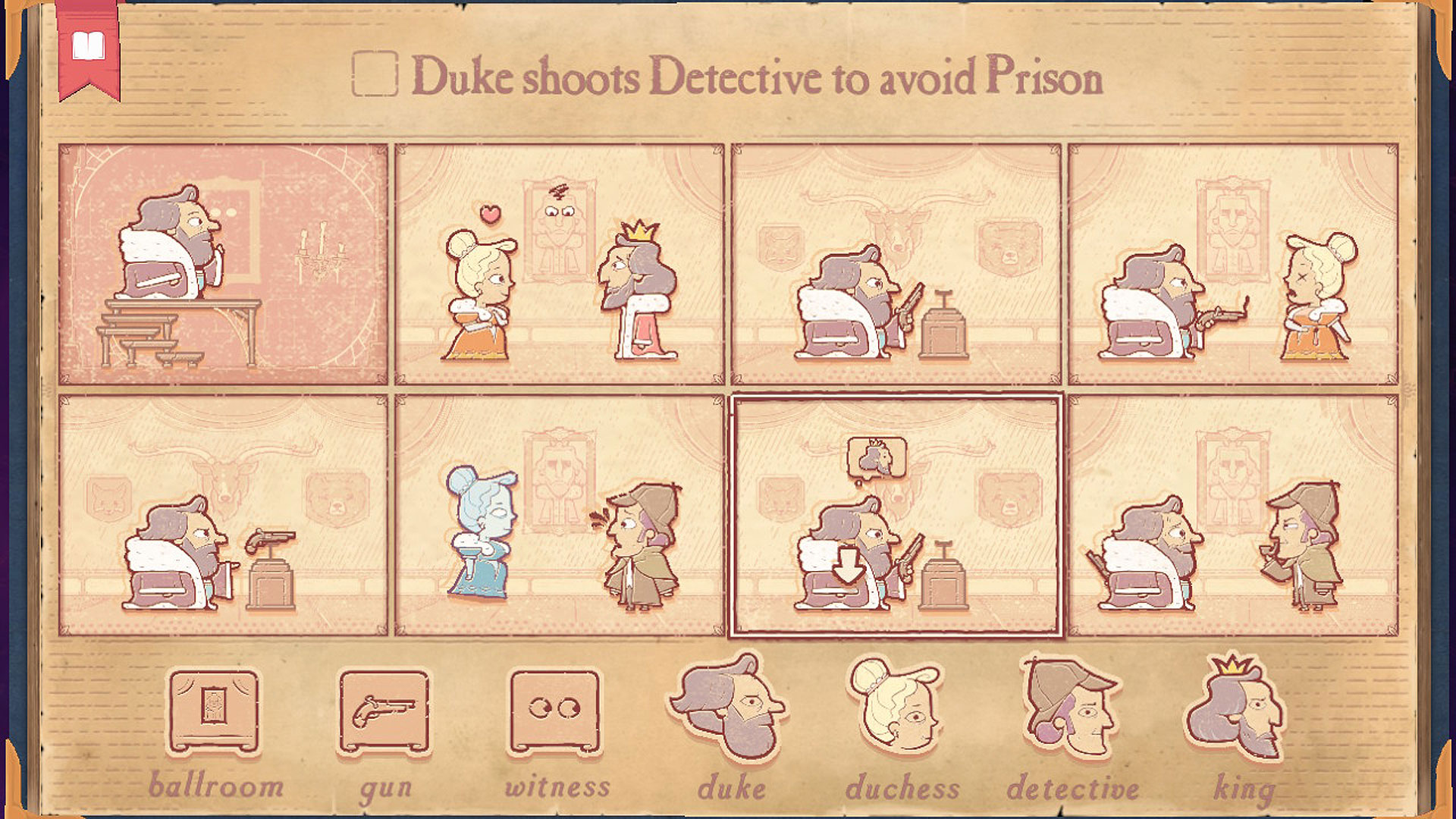Storyteller (Nintendo Switch) Review

Storyteller is a mediocre game that I wanted to like. They say you should never judge a book by its cover or a video game by some arbitrary length of time, but I say bosh and flimshaw to both of those sentiments. A book’s cover is the first thing you see of it, it’s designed to catch your eye and draw you into reading it. If it’s a stupid cover, chances are the words inside won’t be any brighter.
Similarly with video games, if you’re playing something boring or outright bad from hour one, there’s a good chance it isn’t going to magically turn around and become brilliant in hour 12—at least not in my experience. To borrow a phrase from Ben “Yahtzee” Croshaw, “you can put your hand on a stove for 20 hours and you’ll probably stop feeling the pain, but you’ll have done serious damage to yourself.”

I bring this up because when I first saw Storyteller I initially wrote it off, but I tried to eschew those feelings and “not judge the book by its cover.” Perhaps this was deeper than I was giving it credit for. But, as is usually the case, I was mostly right from the very beginning as even after playing Storyteller to near completion, it remained a shallow, albeit inoffensive, game that is nowhere as deep as it presents itself.
As I looked a bit more at Storyteller I was reminded a bit of Baba Is You, thinking this would be some unique word-based puzzle solver where the player can mess around with the landscape of the game by changing the characters or settings of each presented story. However, it’s about as straightforward as they come, never allowing for any experimentation or creativity.
The game is comprised of 12 chapters, each containing four Stories. The player is given a certain amount of panels to combine scenes—such as Love, Wedding, Death, Affair, etcetera—and characters in order to achieve the desired outcome. Early stages have simple plots like “Eve Suffers Heartbreak,” which is achieved simply enough—put Adam and Even in a Love scenario, then put Adam in a Death scenario, while later chapters add elements like murder and betrayal to make things a little more complex.

However, Storyteller’s complexity doesn’t equate to difficulty since, despite its facade of creativity, puzzles are only really solved one way. Since you’re given the answer to each one from the beginning, it’s not all that challenging or interesting.
I blew threw Storyteller in less than an hour, solving almost every Story and the handful of optional secondary solutions that are revealed upon completion and only involve a tiny bit of tinkering to complete. I say almost because, despite the game’s pretty toothless majority, a handful of puzzles are incredibly obtuse and had me fiddling around with scenes and characters to no avail until I eventually gave up.
“Storyteller does have a nice visual style, and I did like the way scenes come to life in small ways…”
One of the later puzzles was titled “Duke Shoots Detective to Avoid Prison,” which seemed pretty obvious to me—have the Duke commit a murder, then have him shoot the Detective. But no matter what I tried, no order of sequences, no combination of characters; placing the Duke in the murder room with the Detective always resulted in him hiding the gun and feigning innocence. Similarly, a Story titled “Queen Suffers Four Tragedies” had a similar problem. It seemed like no combination of scenes and characters—or perhaps a lack of panels—could result in the Queen experiencing four tragedies.

Furthermore, the game would really benefit from a Professor Layton-style Hint system since even when I did achieve what I thought would be four tragedies, the game refused to reward me with a clear, apparently not in the way the game wanted me to. That was the point I checked out of Storyteller, refusing to finish those last three puzzles out of sheer frustration and disinterest.
Credit where credit is due, Storyteller does have a nice visual style, and I did like the way scenes come to life in small ways, depending on how you arrange the elements of each scene. It added a nice bit of flair to the game that, had it been expanded upon further, could have resulted in something really creative and unique. The accompanying audio is simple and effective, utilizing gentle harp strings to provide each Story with Classical music that suits its theme and mood.
There’s really not much else to say about Storyteller. It’s a mediocre game that isn’t nearly as smart as it thinks it is, nor is it even classifiable as a puzzle game. Puzzles are something you have all the information for, and the challenge comes from your ability to find the answer. But this game gives you both the information AND the answer, so all it’s challenging is your ability to arrange information, sometimes simply and sometimes incredibly obtusely. Storyteller is the kind of game that would’ve been an EPIC find on Newgrounds, but for $14, it’s hardly worth it.
